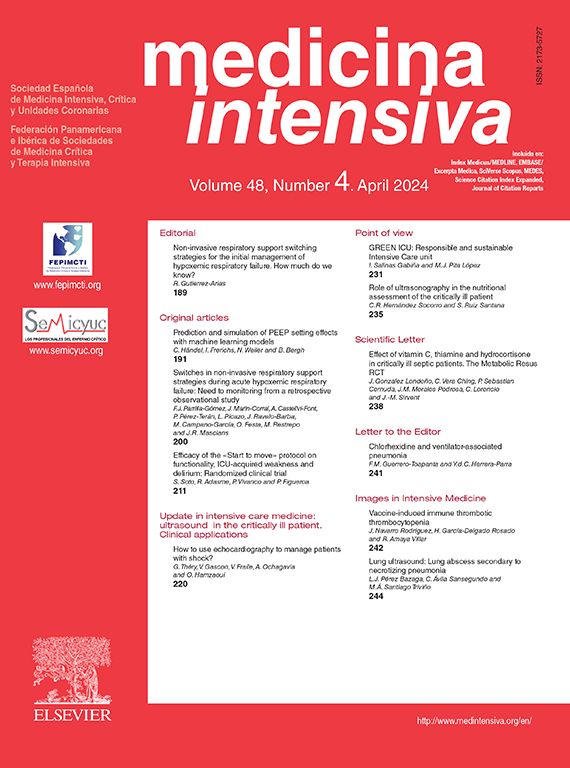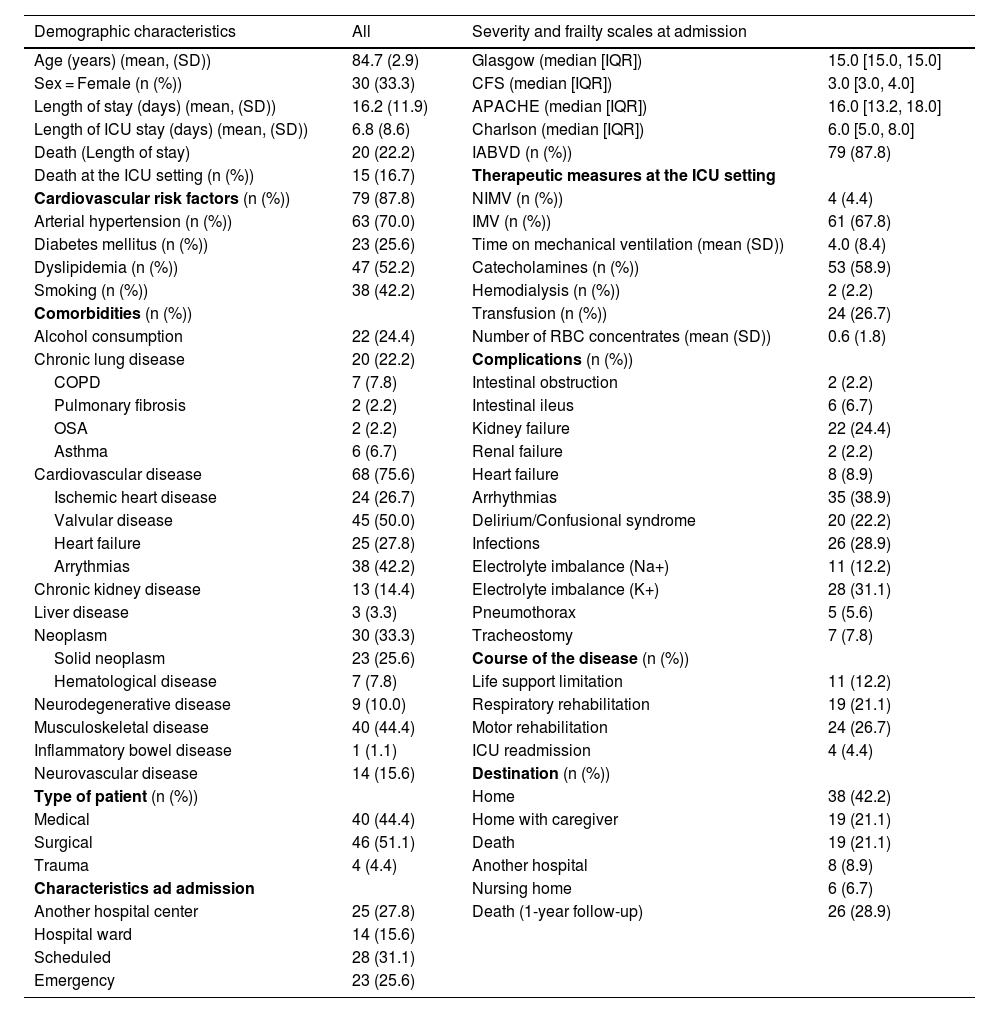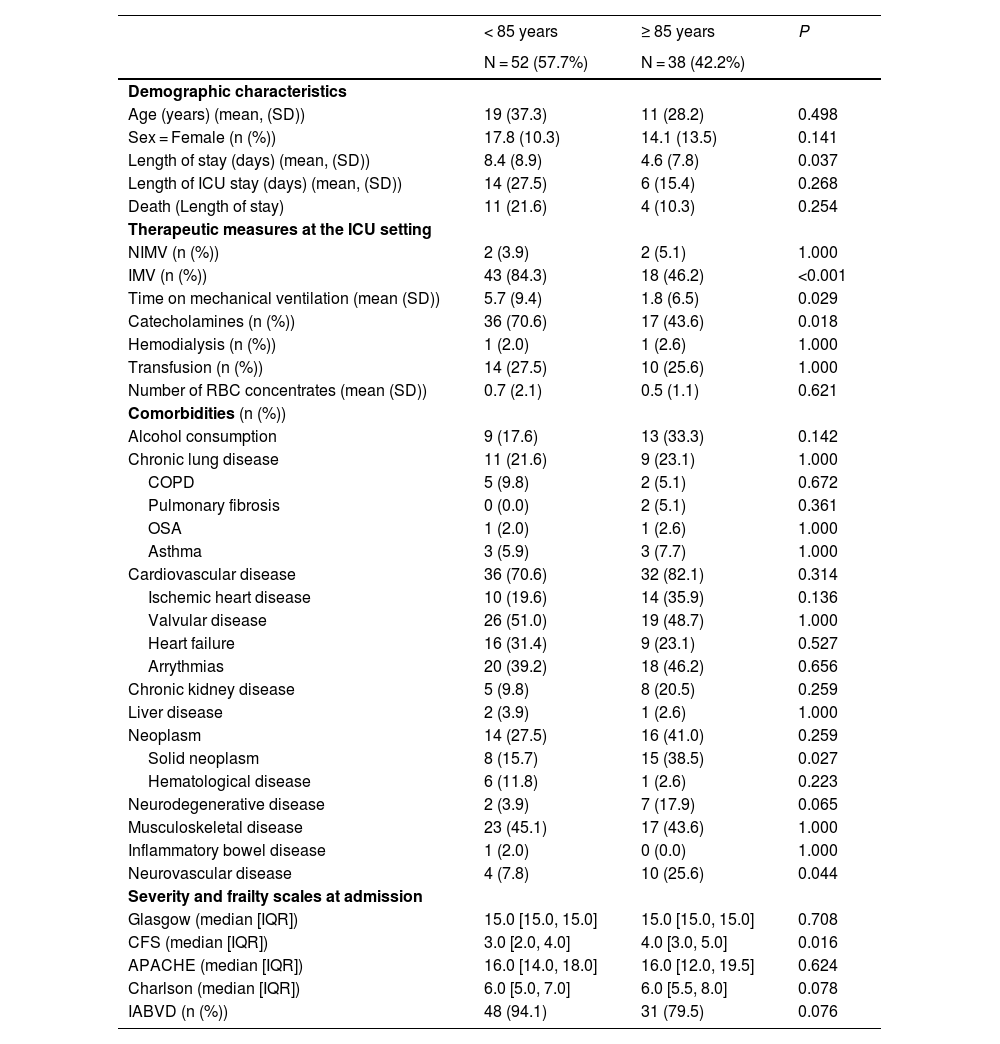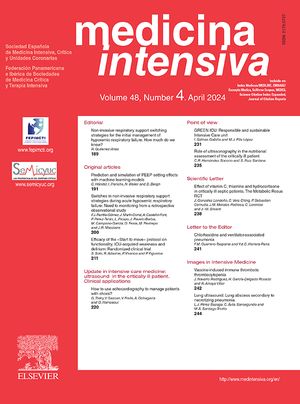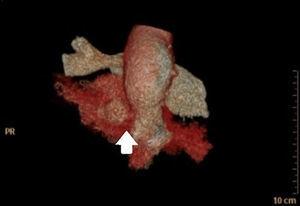To describe and characterize a cohort of octogenarian patients admitted to the ICU of the University Central Hospital of Asturias (HUCA).
DesignRetrospective, observational and descriptive study of 14 months’ duration.
SettingCardiac and Medical intensive care units (ICU) of the HUCA (Oviedo).
ParticipantsPatients over 80 years old who were admitted to the ICU for more than 24 h.
InterventionsNone.
Main variables of interestAge, sex, comorbidity, functional dependence, treatment, complications, evolution, mortality.
ResultsThe most frequent reasons for admission were cardiac surgery and pneumonia. The average admission stay was significantly longer in patients under 85 years of age (p = 0,037). 84,3% of the latter benefited from invasive mechanical ventilation compared to 46,2% of older patients (p = <0,001). Patients over 85 years of age presented greater fragility. Admission for cardiac surgery was associated with a lower risk of mortality (HR = 0,18; 95% CI (0,062–0,527; p = 0,002).
ConclusionsThe results have shown an association between the reason for admission to the ICU and the risk of mortality in octogenarian patients. Cardiac surgery was associated with a better prognosis compared to medical pathology, where pneumonia was associated with a higher risk of mortality. Furthermore, a significant positive association was observed between age and frailty.
Describir y caracterizar una cohorte de pacientes octogenarios ingresados en la UCI del Hospital Universitario Central de Asturias (HUCA).
DiseñoEstudio retrospectivo, observacional y descriptivo de 14 meses de duración.
ÁmbitoUnidad de Cuidados Intensivos (UCI) Cardíaca y UCI Polivalente del Servicio de Medicina Intensiva del HUCA (Oviedo).
ParticipantesPacientes mayores de 80 años que ingresaron en la UCI durante más de 24 horas.
IntervencionesNinguna.
Variables de interés principalesEdad, sexo, comorbilidad, capacidad funcional, tratamiento, complicaciones, evolución, mortalidad.
ResultadosLos motivos de ingreso más frecuentes fueron la cirugía cardíaca y la neumonía. La estancia media de ingreso fue significativamente mayor en pacientes menores de 85 años (p = 0,037). El 84,3% de éstos últimos se benefició de ventilación mecánica invasiva frente al 46,2% de los pacientes más mayores (p = <0,001). Los pacientes mayores de 85 años presentaron mayor fragilidad. El ingreso por intervención quirúrgica cardíaca se asoció con menor riesgo de mortalidad (HR = 0,18; IC 95% (0,062–0,527; p = 0,002).
ConclusionesLos resultados muestran una asociación entre el motivo de ingreso en UCI y el riesgo de mortalidad en pacientes octogenarios. La cirugía cardíaca se asoció con mejor pronóstico frente a la patología médica, donde la neumonía se asoció con mayor riesgo de mortalidad. Además, se observó una asociación positiva significativa entre edad y fragilidad.
Article
Go to the members area of the website of the SEMICYUC (www.semicyuc.org )and click the link to the magazine.

